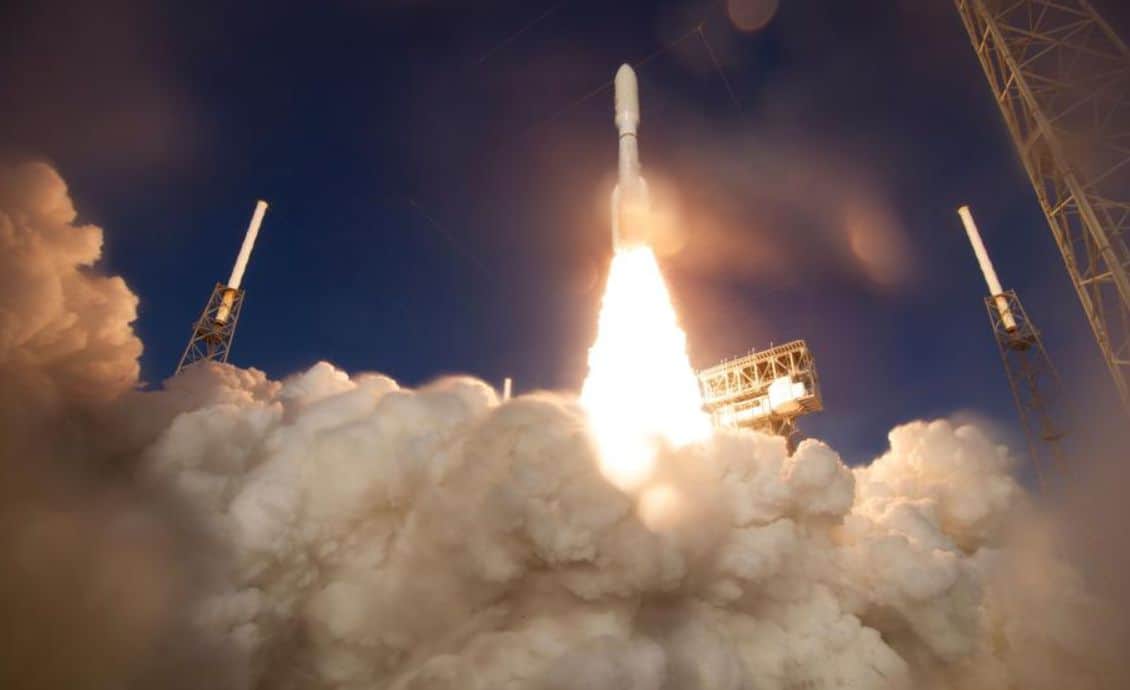The new Mars rover, also known as Perseverance, is already in orbit. It took off this Thursday from Cape Canaveral in Florida towards the Red Planet with the mission of finding microscopic life either present or past on the Martian surface.
The NASA spacecraft was launched into space on an Atlas V rocket at 7:51 (11:51 GMT) from Launch Pad 41 at Cape Canaveral in Florida where launch conditions were unbeatable.
”The public wants to see the United States of America and our international partners doing amazing things. Historically we have done amazing things in the most difficult times,” said NASA Administrator Jim Bridenstine, minutes before launch, regarding this mission during the Covid-19 pandemic.
The earth seemed to bid farewell to the rover after a slight 3.9 magnitude tremor occurred at the Pasadena (California) control center and after the traditional countdown, the rocket ascended into the skies and headed for Mars where it is expected it will arrive next February at Jezero crater.
After leaving Earth’s atmosphere the rocket rose to a height of 260 kilometres and 45 minutes after launch it activated the second-stage thrusters that put Perseverance on the proper trajectory away from Earth’s orbit.
This is one of the most complicated parts of this mission start since you have to select the right moment for the ship’s propellers to activate with the necessary force so that seven months later it reaches the exact point.
The Mars Rover 2020 mission aims to look for indications of present or past life as the spacecraft explores the Martian surface and it had to occur at this time of year since that is when Earth and Mars have the proper alignment for the trip to be least expensive as possible.
In addition, Perseverance will take samples of the planet’s soil that will be sent to Earth and determine if carbon dioxide from the atmosphere can be transformed into oxygen for future missions, among other objectives.
The Perseverance rover has among its scientific instruments MEDA, an environmental station that will be in charge of characterizing the environment and monitoring radiation and dust, led by the Center for Astrobiology (CAB-CSIC) and the National Institute of Aerospace Technology (INTA), with the participation of Alter Technology and Airbus. When it lands on Mars in February 2021, MEDA will become the third-largest Spanish environmental station operating on the Red Planet, a CAB statement said.
MEDA (Mars Environmental Dynamics Analyzer) consists of seven sensors to measure wind direction and speed, relative humidity, atmospheric pressure, solar radiation, ultraviolet, infrared and visible incidents, properties of suspended dust, temperature from the ground and air, and also a camera to take pictures of the Martian sky.
Perseverance is also equipped with a high-gain antenna, which will allow direct high-speed data communications with Earth, which has been developed by a consortium formed by Airbus Defense and Space and Sener Aerospace, with the Center for the Industrial Technological Development (CDTI) as a financing agency.
Perseverance is slated to land within 45-kilometre to Jezero crater north of the Martian equator, where a river was flowing sometime between 3 billion and 4 billion years ago.
